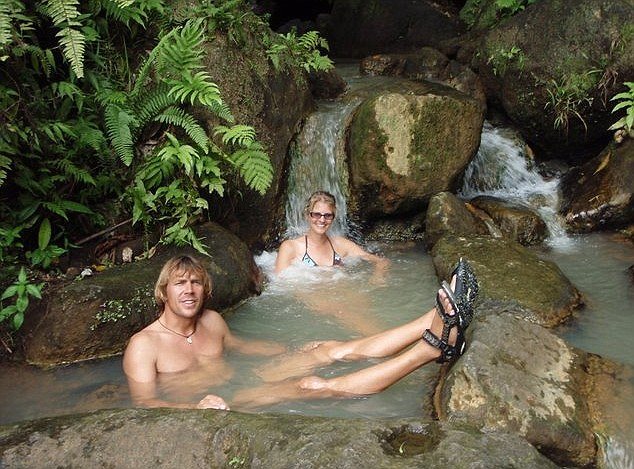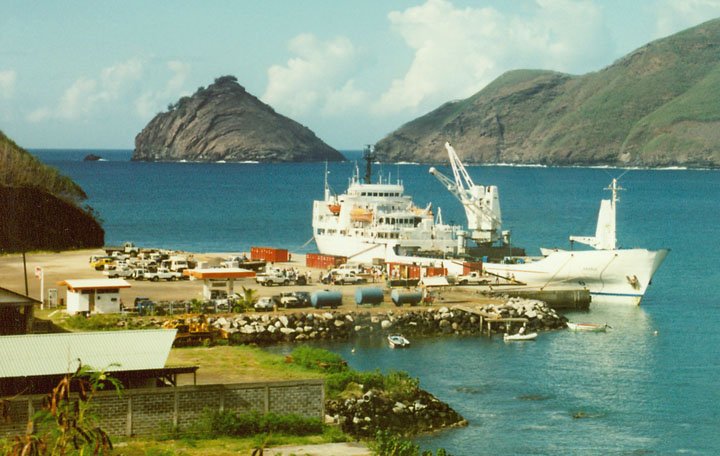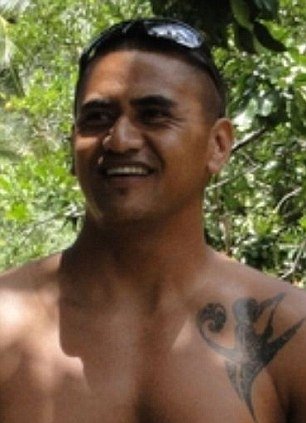
Stefan Ramin’s teeth found in a cannibal fire camp on Nuku Hiva island.
Stefan Ramin, a German round-the-world sailor is feared to have been eaten by cannibals during a visit to Nuku Hiva, a South Sea island of French Polynesia.
Police found remains on a camp fire which are believed to belong to Stefan Ramin, a 40-year-old business adviser from Haselau in Schleswig-Holstein, northern Germany.
Stefan Ramin apparently arranged to go on a traditional goat hunt in the forest after dropping anchor at Nuku Hiva in French Polynesia.

Stefan Ramin’s girlfriend, Heike Dorsch says she saw him depart with a local guide, named as Henri Haiti. After a while, only the guide returned and he told her: “There’s been an accident. He needs help.”
Before she could rush into the forest, however, Heike Dorsch claims Henri Haiti chained her to a tree and sexually abused her.
Heike Dorsch, 37, managed to escape hours later to alert authorities and they began a seven-day search for her partner, Stefan Ramin.
Last week, the ashes were found in a valley by a squad of 22 police officers and among the embers were bones including a jaw bone, teeth and melted metal, believed to be fillings.

Police investigators believe a “human body was hacked to pieces and burned”.
The guide, Henri Haiti is still missing and soldiers from the French overseas territory have joined local police in the hunt for him.
The remains found in the forest were flown to a hospital in Papeete, the capital of French Polynesia, and from there to Paris for DNA analysis to prove whether they are all that is left of Stefan Ramin.

In 2008, Stefan Ramin set out to sail the world in a catamaran with his girlfriend Heike Dorsch.
On his Facebook page, Stefan Ramin listed his interests as “travelling, blue water sailing, kiting, kitesurfing, windsurfing, surfing, diving… actually everything which one can do on and under the water”.
Stefan and Heike used an online blog to report their progress to friends and relatives.
In September, Stefan Ramin dropped anchor in Nuku Hiva, largest of the Marquesas’ islands, which, over the centuries, have featured in many reports of cannibalism.
José Thorel, a French chief investigator based on Tahiti, did not rule out the possibility that the remains are of Stefan Ramin but said the DNA evidence could take weeks to analyze.
The German newspaper Bild said that Henri Haiti was a “suspected cannibal”.
Reporting from the scene, Bild wrote: “Ashes from the fire are distributed over several square meters. In it bones, dentures and an artificial denture with charred metal lay. It smells of burned meat. Around the fireplace clothes were scattered.
“A prosecutor said that the probability is that he was murdered by a cannibal and parts of him were eaten.”
Deputy Mayor of Nuku Hiva, Deborah Kimitete told local news website Les Nouvelles: “No one can believe what has happened. This has never happened here before, this is the first time, it’s horrible.”
Nuku Hiva is an island with a population of just over 2,000 and featured in the stories of Herman Melville, author of Moby Dick.
Outside of horror films, cannibalism is virtually unheard of in the modern world. The Korowai of Papua New Guinea is one of the last surviving tribes to eat humans as a cultural practice. The tribe is numbering about 3,000, who live in an area so remote they were unaware of the existence of anyone besides themselves until 1970.
It was reported that the Korowai eat the brain immediately, while it is still warm, but the claims have not been verified.